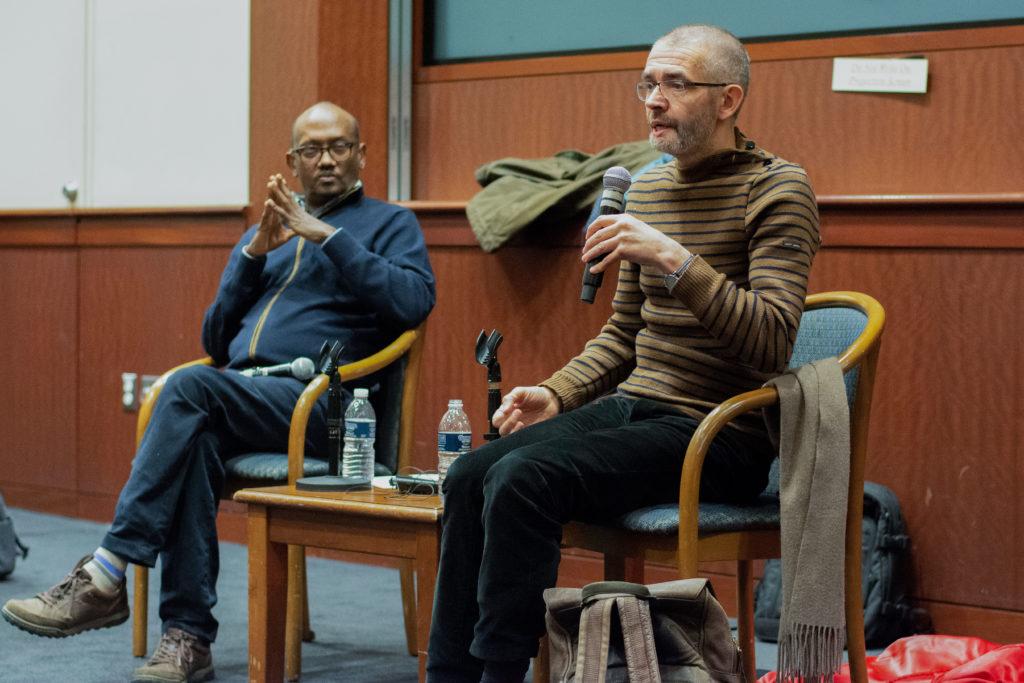A survivor of the 2015 terrorist attack on the French satirical newspaper Charlie Hebdo discussed his experiences in the attack’s aftermath at the Marvin Center Friday.
Philippe Lançon, a journalist wounded in the January 2015 shooting at Charlie Hebdo’s offices that left 12 dead, discussed his new book “Disturbance: Surviving Charlie Hebdo” and how he rebuilt his life following the attack. Lançon spoke with French professor Abdourahman Waberi at the event, which was held in French and translated into English through headsets.
Lançon said he is “aware of the luck that I had in my ill-luck” in surviving the event, recalling how he saw legs approaching him from under a table during the shooting. He was critically injured in the attack and needed more than a dozen operations to recover.
“It was a massacre, but it was more like an execution, head by head,” Lançon said.
He said he read the police reports of each victim’s condition because he found it “essential” to gain perspectives of the event outside of what he personally experienced. He said it was “second nature” to begin writing critiques again the same year and said writing the book aided his recovery by helping him evaluate what he was experiencing.
“I became a journalist of my own experience,” he said.
Prior to “Disturbance,” Lançon published “Le Lambeau” in 2018. The book, whose title refers to a surgical flap of skin, details Lançon’s hospital stay and facial reconstruction surgeries.
In English, the novel’s title contains the subtitle “Surviving Charlie Hebdo,” which Lançon criticized because he felt that the novel was more about resilience in the aftermath of the attack, rather than chronicle an eyewitness account of the attack.
“I would never have done that,” Lançon said. “It reduces it to one aspect of witnessing Charlie Hebdo.”
Media coverage following the shooting focused on Islam, as Charlie Hebdo was known for publishing provocative cartoons relating to the religion – the newspaper’s offices were previously firebombed in 2011 after publishing a caricature of the Prophet Muhammad. Witnesses recalled the shooters allegedly shouting “We have avenged the Prophet Muhammad” and “God is great” in Arabic.
But Lançon pushed back against the idea that the shooting was inspired by a place of religious faith, emphasizing that the terrorists were humans first.
“I’ve never felt like a victim of Muslims,” he said. “I was a victim of two killers.”
Lançon added that he had “no idea” what he would want to tell the shooters if he could meet them – he didn’t “think that way.” But he said his journalistic instincts would naturally prompt him to ask the shooters about their motivations.
“I would really just like to listen to them – I have nothing to say to them,” Lançon said. “But they certainly are men who had something going on in their head, and I would like to know what were they thinking.”
Most of Lançon’s book focuses on the aftermath of the attack instead of the attack itself, but the chapters on the attack include graphic imagery of a nearby colleague’s death. Explaining the decision to include such details, Lançon said he simply wrote what he “saw and felt.”
“The first image of the world that I saw after that was that,” he said. “That was the door through which I passed, so I couldn’t not describe it.”





